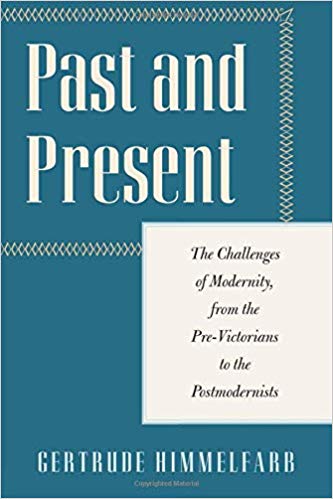David Warren on the work of the late Gertrude Himmelfarb and the era she documented:
The historian, Himmelfarb, is particularly good at revealing the often generational decline in “liberal values,” for instance from helping the poor through such institutions as the Salvation Army, to using them for moral posturing at no personal cost. This corresponds to a loss of religious faith, and its replacement by moralizing. Modern “virtue signalling” has deep Victorian roots.
Unfortunately we now live in a time that is narrow, and for the most part thinkers are ignored, or reduced to single sound bites. For our time, and in our universities, so great a student of philosophy as Leo Strauss, of literature as Lionel Trilling, of social research as Irving Kristol (the brilliant man Himmelfarb married) are dismissed unread as “neo-conservatives” and worse, when in fact they were engaged with the whole Western tradition. Today, the contemptible Washington Post associates them with a rightwing “backlash,” as if they were shouting slogans. Impressive Jewish thinkers are casually compared to “white nationalists” or “supremacists,” in the frothing malice of the SJWs.
Yet the characters rejected were once themselves Leftists (though anti-Stalinists), and their perceived voyage to the Right was a steadiness as the waters passed them by.
I was thinking this just now while reading the first essay in Himmelfarb’s latest and possibly last book of essays: Past and Present. It is about Strauss (another formative influence). What a paradise it would have been to be among the “Ivy Leaguers” of the post-War and ‘fifties; during a long-lost American adventure into the world of ideas. Himmelfarb was the last of that team of adventurers, I was thinking; the landscape now is, intellectually, barren. Even to participate in “high culture” — what Matthew Arnold innocently called, “the best that has been thought and said” — is to put a professor at physical risk.
Leo Strauss explained somewhere, or in several places, that the student of the past must be prepared to learn something — “not merely about the thinkers of the past, but from them.”
Today’s student (if any are left in the humanities), replies with incomprehension. What an affront it is, to a later academy, in which the only purpose for the past is to judge it, by the asinine prejudices of the present day.




